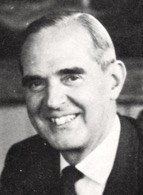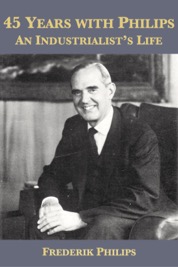
He then headed Philips from 1961 until 1971, one of the company’s most successful periods: Philips employed over 350,000 employees worldwide and was a leading manufacturer of consumer electronics, medical devices and lighting. Philips’ in-house research lab, a novelty when it was established in 1914, invented the electric rotary razor, cassette tape, and together with Sony, the CD and DVD. Throughout his life, Frederik Philips was a major advocate for the development of medical equipment. After transforming the consumer electronics market for decades, Philips did the same in the medical field.
Ahead of his time, Frederik Philips believed in and practiced socially responsible management. He wanted Philips to take care of all parties involved, shareholders, suppliers, employees and customers. From 1929 onwards, Frederik Philips was a committed Protestant member of Moral Re-Armament (MRA) or Oxford Group, an international movement based on religious core values. In business, MRA strived for close cooperation and mutual respect between employers and employees. In 1986, Frederik Philips launched the Caux Round Table (CRT) group of senior European, Japanese and American business executives. The CRT’s Principles for Business was presented to the UN Social Summit in Copenhagen in 1994. It has since become a standard text and has been used as the basis for internal ethical assessments by international companies.
Frederik Philips received numerous awards, including honorary citizenship of Eindhoven and Hasselt (Belgium), honorary doctorates from the universities of Louvain and Taipei and honorary titles in Japan, France, Germany, India and elsewhere. In 1995 Frederik Philips was honored as “Righteous Among the Nations” by Yad Vashem in Israel, for saving the lives of 382 Jewish employees of Philips during World War II. His Autobiography 45 Years with Philips covers the highlights of his personal and professional life.
Click on the cover for details about the eBook:




